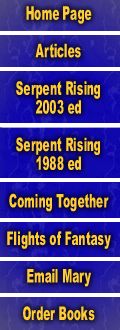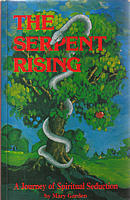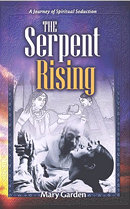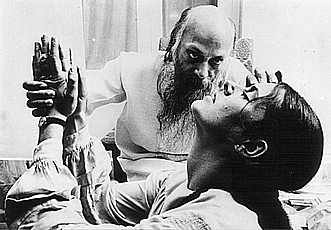



Newspaper Reviews:
Whitehouse, H 1991, 'Pitfalls and the Pilgrim', Sunshine Coast Daily, 5 October.
Hough, M 1990, Australian Parapsychological Review, February, no 15, pp. 14 - 15.
1990, Glasshouse Country News, 22 February.
1990, Range News, Maleny, 16 February.
Gough, S 1989, 'Dangers and hypocrisies amid the cults and gurus', Courier Mail, 29 July.
McIlwaine K 1989, 'It's hooroo guru in the mystic east', Sunday Sun, 2 July, 12s
Feature Articles:
McLean, S 1989, 'Garden set to tame serpent', The Sunday Mail, 14 May.
Bailey, S 1989, 'Pilgrimage to terror', Woman's Day, 2 May, pp. 12 - 13.
Excerpts from Readers' letters
I was fascinated by your book. I picked it up and I sort of looked at it and I thought 'oh yeah' but after I had read 4-5 pages I couldn't put it down and I ended up reading the whole book in about the space of 4-5 hours. It's an extraordinary story. … I've learnt more from this book than I've learnt in a whole lifetime on this type of subject. Ian Holland 4KQ Radio, Brisbane
Received your book today, and started browsing it. Finally I couldn't stand it and read the whole thing cover to cover. And this when I am only days from deadline. You have a gift for communicating, and after reading your experiences, I am not surprised. My hat is off to you, for having come through all your experiences with an improved view of life! You should definitely republish your book, it is much needed in this deceptive age. Duncan Roads, Editor, Nexus Magazine.
Your book was filled with rich and extraordinary images - and certainly deserves its good reviews. John Reeves, movie producer, Victoria.
I read your fabulous confession on the plane from New York to Munich … If properly marketed you could make a mint with that little book. Professor Agehanda Bharati, Syracuse University, New York.
Compelling reading. A frank and personal account of the search for 'Reality'. Leaves one uneasy about the traps that are there for the genuine but unwary seeker. Grahame Defty, Anglican priest, Hornby Heights, Australia.
The story you tell is thought provoking, and we wish you well. Scott Peck, best selling US author.
The book was absolutely fascinating and your story needed to be told. Professor Ann Faraday, Sydney, Australia.
Gripping, interesting, very moving, beautifully written in parts Maurice Gee, one of New Zealand's most acclaimed authors.
A vivid description of one person's spiritual journey. Much of what the writer shows us of gurus, yogis and swamis may be disconcerting for the reader. This book teaches us to be mindful of spiritual power - and of its abuse. Don Diespecker Ph.D. (psychologist & psychotherapist, Australia) .
I would like to say that I read your book in one day, unable to put it down … I thank you for your honesty in this book. It's certainly refreshing. Dianne Allen, Victoria, Australia.
I read your book 'The Serpent Rising' and was fascinated by it as it paralleled my experiences in Satyananda Ashram - here in Australia and at Monghyr, Bihar, India.. Psychiatrist, Sandra Smith, Gosford, Australia.
What an extraordinary tale you tell in The Serpent! Spiritual seduction indeed. You caused me to read into the early hours of the morning. Bob Walshe, Sutherland, NSW, Australia.
I compliment you on your frankness and honesty. As I read your book compellingly one night straight through I cried and laughed with you, wishing a the same time that both of us could find the means to lighten our acceptance of what life dishes out. I had once thought of doing the India trip but you saved me from that. Helen Foster-Holland, SA, Australia.
Your book is powerful and profound. What you are voicing is a critical issue of these changing times. Everyone is trying out a multitude of different cults, paths, spiritual disciplines, etc until we find out that no one outside of us has the answers we seek. Your book bespeaks the fixations of an entire generation (or three). The immediacy was so special, both my boyfriend read it from cover to cover, barely pausing to eat, sleep etc because as a record of experience it was so passionately real and unselfconscious. I would like to affirm your work and its qualities of exceptional directness and revealing honesty. Sue Booker, Bronte, NSW, Australia
I saw 'The Wizard of Oz' the other day with my children and the lion reminded me of your courage. I think your boom is very important simply because there is hardly a thing written to expose the bullshit, not to mention the lives that are destroyed. I hope you feel very proud of yourself. Katia Dark, NSW, Australia.
I appreciate you telling your story … Your agonising experiences and ecstatic periods I found totally absorbing. I read your book in one afternoon, hardly stopping. Jonathan Hurding, Mapleton, Qld, Australia.
I found your book fascinating, could not put it down once I started reading it. What really impressed me was your courage in putting pen to paper. Sue Delaney, psychologist, Sydney, NSW, Australia.
Thanks very much for the book. Spine-chilling stuff! And telling the same familiar pattern. I am quite certain that the same energy masquerades in the name of "Christian". Bruce Disney, NSW, Australia.
It was wonderful to read your book. It was like being inside your mind, your quest having many similarities to mine. Peter Hoddle, Tasmania, Australia.
I have read your captivating book - you had me every page and I felt I was you at times. Don Weir, NSW, Australia.
I just finished reading your book early this morning. I bought it yesterday … and found it to be totally absorbing and at times un-nerving. The inclusiveness of your search seems to reinforce my belief that no one or no religion will take you to enlightenment. Peter Boman, Brisbane, Qld. Australia.
Sexy Swamis and Spiritual Seduction - The Garden Turns on the Serpent
(Published in Australian Transpersonal Association Newsletter - August/September 1990)
Reviewed by Professor Wren-Lewis
Australian author Mary Garden provides some very concrete examples of the guru-trap and its hazards in her highly entertaining but ultimately very serious little book The Serpent Rising: A Journey of Spiritual Seduction.
Many readers of this Newsletter will already have seen the author, without knowing who she was, in the famous picture of a particularly bug-eyed Rajneesh, giving his 'energy darshan' in Poona to a beautiful prone young woman.

But in her story (which takes the form of a semi-autobiographical novel about a young New Zealand university graduate throwing over a promise academic career to go on the spiritual pilgrimage in India) it's not Rajneesh who is the main seducer. On the contrary, he actually gets points for at least being honest about having sexual and other material desires. Her main scorn is for the hypocritical gurus (which apparently means almost all the others!) who preach celibacy and renunciation but insist on special sessions with attractive disciples (according to their sexual proclivities) to 'raise their kundalini', and indulge in other material comforts to 'test' disciples total devotion.
When Mary was interviewed on Channel 9's Midday Show by Ray Martin she insisted that her real-life story was actually more mind-boggling than the fictional one - but this isn't just a sensational book. As one who knows about spiritual longing, and isn't prepared to dismiss it, she addresses the serious question of why intelligent people can so often become seduced (in every sense) by spiritual charlatans, and for her the greatest danger is the notion of the mind as villain, since this opens the door to a situation where the disciple can be told that any questioning must be firmly set aside as the mind's efforts to avoid the ego's destruction.
Mary recommends simply retaining critical intelligence while continuing one's search.
Her book should be read.
Pitfalls and the pilgrim
(published in Sunshine Coast Daily, Qld, Oct 5, 1991)
Reviewed by Harry Whitehouse
Maleny has become a sanctuary to a very diverse group of human beings. Many individuals, no doubt, have cogent reasons for being here. Others have found their way here at the end of a particular career, accident or odyssey. Odyssey is an understatement as far as Mary Garden is concerned.
In reviewing her book The Serpent Rising, I was struck by haunting affinities with John Bunyan's The Pilgrim's Progress. Bunyan, despite repeated failures (mostly in his own mind) finds his path to God. Along the way, in beautiful and simple English prose, he makes sage and sometimes humorous observations upon his fellow man. Who has not met, at one time or another, "Mr Facing Both Ways" and "Mr Worldly Wiseman"?
Mary Garden's pilgrim, Helena Pearson, encounters all of these types - and traps - on her path. Her description of Helena's progress through what one could call "the Ashram Circuit" in India is piercingly honest. Her book is based upon some of her own experiences and has an autobiographical element to it.
Helena is an incurable romantic and the reader travels with her along the path taken by so many Westerners, into the labyrinth created by what I shall call Guru Inc. There is no doubt that most of the spiritual groups in India are led by men of exceptional gifts. Instinctive insight, genuine psychic powers and magnetic personalities, projected in the supportive ambience of an ashram, create an atmosphere of devotion and hero worship, all too easily manipulated.
Human nature being what it is, some of these gurus use their gifts and the power that flows from them for their own personal gain and gratification.
Helena learns this the hard way. The spiritual seduction, which is the sub-title of this book, rapidly transforms itself into a physical one. Talking to Mary Garden about this, she readily agreed that this relationship stems, in part, from the woman's perception of being her guru's right hand with a consequent vicarious sharing of the power the guru exerts over his disciples. In fairness to the gurus, it would take extraordinary power, of self-restraint and denial, not to take advantage of the opportunities willingly bestowed by their acolytes. The disciples themselves in turn imagine themselves as having a direct line to God!
Belonging now to what she calls and "invisible network of ex-seekers" Mary has settled into our community with a healthy scepticism and a contentment born of past experiences, travails and mistakes - a situation which probably applies to most of us!
The Serpent Rising is a very good read: a gripping narrative.
Dangers and hypocrisies amid the cults and gurus
(published in the Courier Mail, Brisbane, Queensland 29.7.89)
Reviewed by Sue Gough
There is no other book that I know of which reveals the addictive nature of the search for spiritual enlightenment than this one.
There are several (Oranges and Lemmings, Bhagwan the God that failed) which explode the dangers and hypocrisies of individual cults, but they do not describe the almost demonic symbiosis that exists between gurus and their disciples quite so convincingly.
The Serpent Rising is not a work of great literary merit. The author is not a polished, practised writer. The questions asked and the conclusions drawn are not intellectually sophisticated.
However, this not a book to be taken lightly.
While it does not seek to be sensational, it is so, by virtue of its subject matter and the courageous honesty of its author.
It is first and foremost painfully self-revealing. Mary Garden has made no attempt to justify or rationalise the bizarre compulsion which took her from successful post-graduate studies in New Zealand to a seven-year stint as a guru groupie.
There is no self-protection in her account. She exposes her suspension of commonsense and the pain, humiliation and self-abasement she suffered.
She is able to do this by convincing herself that she was, indeed, another person at the time and even goes to the length of referring to that person in the book as Helena Pearson.
Her odyssey in search of answers about life, death and the entire universe begins with "Guruji" in a comparative harmless ashram in New Zealand.
It takes her to Sai Baba in Bangalore, where she is first overwhelmed and then disenchanted by this self-styled avatar who materialises holy ash from his finger tips.
The truth is, apparently, that he is an androgynous homosexual.
She goes on to "Swamiji", a beautiful boy-like yogi in the foothills of the Himalayas. Here she submits to grotesque cleansing rituals which involve swallowing and regurgitating yards of bandages and then succumbs to both physical and spiritual seduction.
Garden claims that the extraordinary visions she experienced here were not drug-induced, but the reader will find it hard to believe her claim that the guru had the ability to confer them upon disciples. Only after she has a difficult abortion, and has been replaced by another female acolyte, can she bring herself to leave. And then it is as yet again out of the frying pan and into the fire of the Bhagwan and his Orange People at Poona.
Heres he spends one year undergoing their particular brand of psychotherapy before she realises that their environment is one of neglected children, drug trafficking, promiscuity and hysteria.
She returns to Australia and has not kicked the habit. The reader feels like howling with anguish when she announces that she is now being tempted by the possibilities of Christianity because one fears that she will inevitably be drawn towards some obscure sect.
Finally, however, it appears she is willing to swap the rigors of enlightenment for the prosaic bliss of ignorance.
At the end of it all, the author poses some disquieting questions.
How is it that these gurus can exert an almost hypnotic power over thousands of disciples? Why are people drawn to them when all evidence shows they destroy rather than build lives? What are the components of the spiritually addicted personality?
Mary Garden has no hard and fast answers but her book is a timely and important warning. The age of the cult is upon us. The latest is New Age philosophy.
Before you start seeing dolphins at the bottom of your garden, communing with crystals or listening to the channelled ramblings of Ramtha, read Mary Garden's book. It may just stop you from falling into that vortex of group hysteria where discernment and commonsense are discarded in favour of dubious mysticism.